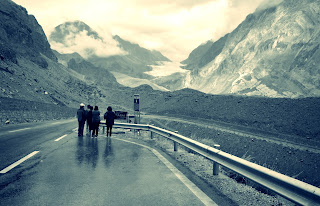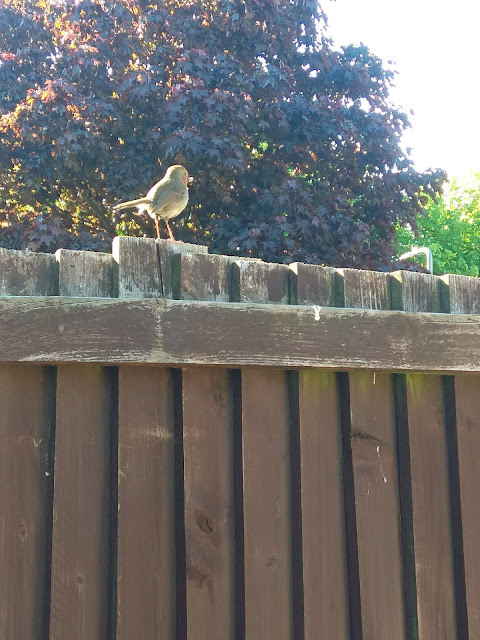What’s Pakistan like?
The old man had the
most startling blue eyes, the kind that glittered in a wizard-like way. He was a contractual worker fixing some room
in the building where I work, and I met him in the kitchen over my morning
coffee. He asked where I’m from and
widened his eyes, commented not on how good my English is but how American my
accent is (which I take no offense or pride in – it’s not the two years of Master’s
in St. Louis but all those American movies and TV shows I watch).
And then he asked me
that question – “so, what is Pakistan like?”
The question always
bounces off me like a gummy ball against the wall. It’s a loaded question, even if it’s not
really meant to be and I usually respond in two ways:
1. “Oh, it’s really nice,” which means
absolutely nothing and really, when you think about Pakistan, nice is really
not the most appropriate adjective … how about – incredible, wild, crazy,
tragic, beautiful, turbulent, difficult to describe…?
2. Or I say something completely inane like,
“well yeah, the traffic is horrible.” Which is true, of course, but when
someone asks about what your birthplace/homeland is like, do you really want to
start, and in most cases end, with that?
For some reason the question
makes me antsy. I feel the need to
invite the inquirer to a presentation where I can have at least 30 minutes to
go through a stack of 15 slides, highlighting some aspects of what my country is
like. There is an insistent need to not
say anything negative because there is already so much negativity out there,
but if I don’t mention any of it and say it’s beautiful and lovely and the
crispy tandoori parathas make everything worthwhile, then I’d feel dishonest
because how can you not mention the poverty and the overpopulation and the
widespread intolerance?
See my dilemma?
What’s it like?
I wish I could say –
It’s horrifically
dirty and there are slums like Macchar Colony in Karachi where children about
the size of Bonsai trees run around barefoot in 5 inches of sewerage, poking at
tired dogs with patches of skin visible on their skeletal bodies.
There are so many people – it’s like when you shake a
can of Pepsi and open it, and there’s an explosion of foam, people pouring out,
milling about in streets, squatting on their haunches, sipping tea from small
glass cups, standing behind stalls selling bright purple eggplant and pale
coloured cabbage, spread out on dry grass in parks sharing sandwiches and
samosas, buying plastic jewelry and plastic slippers in markets, perched
precariously, three, four, five and a baby on motorbikes, playing Ludo late at night under streetlights…
It’s haphazard and
unruly, nobody follows the traffic rules and there are too many cars, the bus
drivers are psychotic and pedestrians more thrill-seeking than the young men
who throw themselves off cliffs – they’ll dart in front of speeding cars or
pause in the middle of crossing the road to glance back at a straggling
child. There are no bus lanes, no bike
lanes and the 1,000 ton-containers are never bolted down on their barreling wagons. Sometimes there are cows and camels.
We have too many stray
dogs and cats and street children and beggars with amputated limbs.
And then there is the
sea that surges on and on, despite everything that has happened, and there is
joy at the dirty, polluted smudgy Sea View beach where thousands of people wade
in, fully clothed, holding hands, as the gray sea sweeps over them, toppling
them like an unruly friend, backing away just so they can get back on their
feet again and then coming back again, cresting, jumping over, drenching, and
if you want, there is popcorn and French fries, and charred cobs to munch
on.
And sometimes there
are fiery sunsets that whip across the sky like the orange gold yellow streaks
of paint by a madly talented artist and your mind is wiped clean of all
thoughts as you watch the burning ball of sun slipping slowly down and into the
misty gray sea.
It is scattered with
large pockets of intolerance that breeds in small madrassahs and small minds,
fanned by poverty and frustration and evil, it is fed into young minds and
shared in fancy living rooms and offices too.
It is peppered with
smaller pockets of beautiful, brave people who speak out against injustice and
preach love and peace, it’s scribbled in moldy notebooks and discussed on the
grey seats of classrooms and in cozy cafés with art on the walls and warm
orange lamps, and every now and then at larger gatherings under palm trees and
wind-blown canopies next to stalls of books and children browsing through the
books.
It is populated with
passionate, persistent people who have left lofty jobs and neat queues to come
back to their unruly messy country and work there despite its maddening ways.
It has sunny blue
skies
And when it rains in
Pakistan, people don’t put up their umbrellas or pull on their Wellingtons,
they rush out and get drenched, kids hop around in puddles and mothers fry
pakoras and friends share cups of steaming tea.
It has people who are
nosy and judgmental and you call all strangers aunties and uncles and bhai and behan, and old women you meet for the first time on a bus will ask
you if you’re married and why you don’t have kids and what you earn, and many
men will stare at you as you walk down a crowded street.
It has people who have
hearts as big as the sky and if you visit their house, with a survey or a question,
they’ll offer you anything from fried bhindi
to roasted peanuts, and chai, they’ll always offer you chai. And they’ll help you reverse out of a tight
spot and they’ll help you change your tire, and they’ll give you directions
even if they don’t actually know the way, and you can always ask to hold their
cherubic baby, they won’t think that’s creepy at all.
It has hundreds and thousands
of people who march for things they don’t fully understand.
It has artists and
film directors and writers and festivals celebrating culture, literature, food,
music, and these are slowly growing.
It has mouthwatering
delicious food – Karachi’s bun kababs to Lahore’s fresh water fish and tikkas
to Peshawar’s chapli kababs and have you ever tried the cottage-cheese rotis in
Hunza served with apricot chutney? Fruits and vegetables and nuts and don’t
ever forget the chai, the spherical dense doughy parathas crispy on the outside
and soft and buttery on the inside…
And it has the world’s
most majestic mountains that will take your breath away and when you stand in
front of a snowcapped jagged brute of a mountain with the sky for a crown and
the sun for a mirror, it will be like a zap from a wand, you’ll be turned into
a tiny speck of dirt and you’ll never feel so insignificant and you’ll never love
that feeling of insignificance anywhere else.
So you see. What Pakistan’s like isn’t an easy question
to answer.
Because, you see,
Pakistan is complicated and rich and diverse and beautiful and horrible all at
the same time.
And then.
Pakistan is home.



Comments
Post a Comment